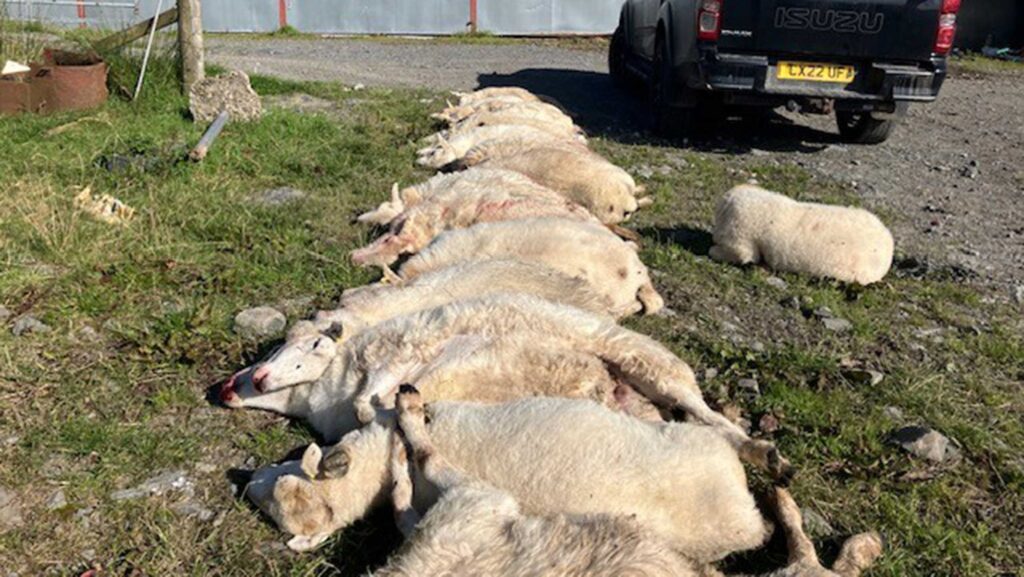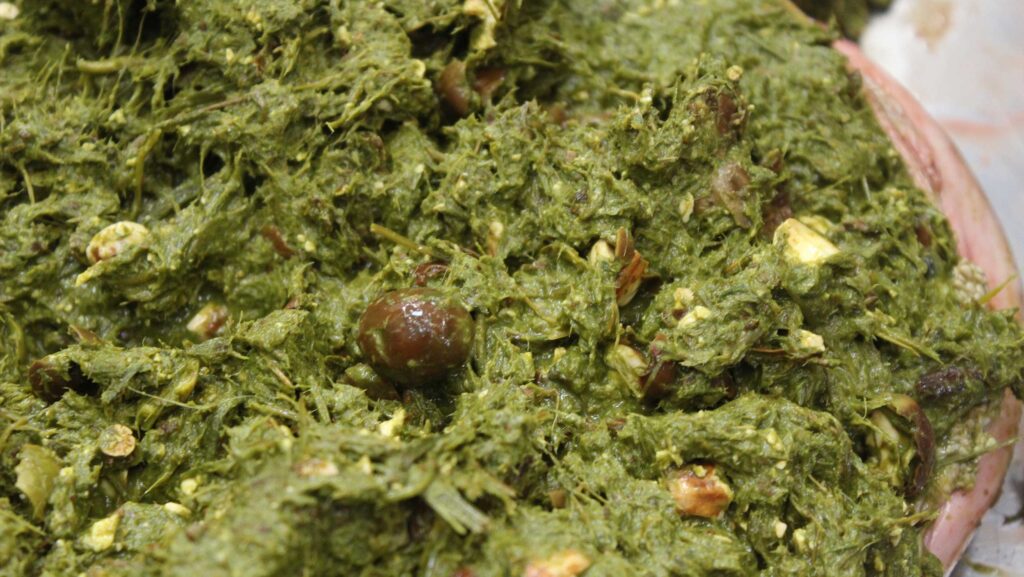Farmer warns of acorn poisoning after 30 sheep die
 Sheep killed by acorn poisoning © Geraint Davies
Sheep killed by acorn poisoning © Geraint Davies A north Wales beef and sheep farmer has warned others to be vigilant after more than 30 sheep have died of acorn poisoning on his farm.
Geraint Davies, who with his wife Rachael farms 485ha in Bala, Meirionnydd, told Farmers Weekly of the distress of finding the ewes dead on Thursday (25 September).
Post-mortem results from the Wales Veterinary Science Centre (WVSC) confirmed the ewes had died from severe acorn poisoning.
See also: Vet warns of acorn poisoning in ruminants
“It’s absolutely devastating and because we’ve got plenty of trees we can’t avoid having sheep in fields with oak trees in them. It’s just a nightmare of a year and I hope we won’t find any more,” he said.
Acorns have fallen on the ground in vast quantities this year following the hot summer and pose a significant danger to ruminants if large amounts are ingested.
The phenols and tannins are toxic and can cause kidney and liver failure. There is no cure for poisoned animals and green acorns are particularly high in toxicity.
Tipping the balance
“Like many farmers, we’ve worked hard to bring trees back on to the land, alongside managing ancient woodlands and for all the right reasons such as shelter for livestock, biodiversity, soil health and carbon sequestration,” said Rachael Madeley-Davies.
“Despite monitoring, moving stock and managing forage, sometimes the balance between trees and grazing can tip in an unforgiving direction,” she added, even though the experience hasn’t changed her belief in the value of trees on farms.
Mr Davies said it was now a case of riding the storm and warning others to be vigilant.
“Short of changing our entire farming system we need to weather the storm, fence off what we can, but that’s easier said than done.
“I would encourage others to be highly vigilant and aware of the risk acorns pose,” he said.

Acorns in sheep rumen © WVSC
Limit access
Wales Veterinary Science Centre disease investigator Beverley Hopkins said this year’s heavy acorn crop is a big risk.
“Cattle and sheep find them particularly palatable and can ingest huge numbers, leading to cases of acute toxicity, but also long-term kidney failure.
“Where possible, we advise limiting access to them, especially for groups of cattle with young calves as these are particularly partial to them,” she said.
